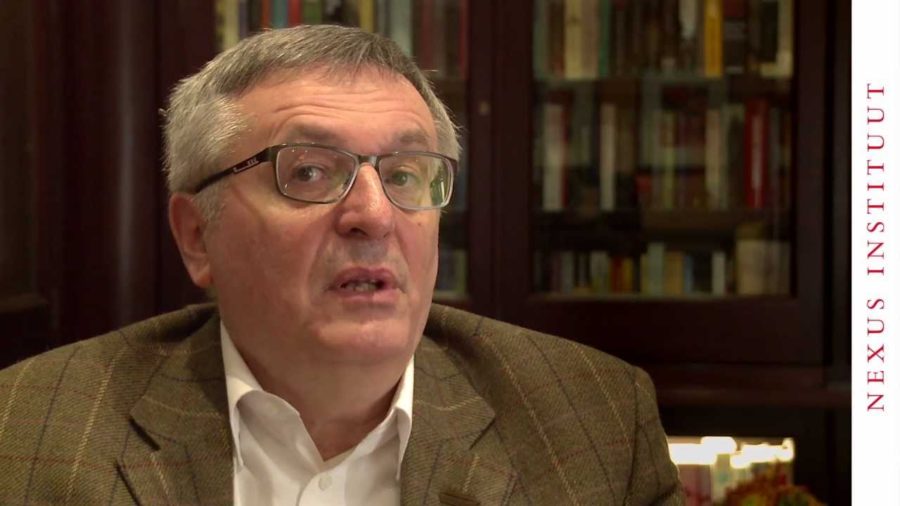John Gray: Whatever human beings do changes the world. The question is whether projects which are formulated to change the world in certain specific ways can succeed. And one of the problems here, of course, is that there’s no “we.” Who’s we? I mean, humanity’s composed—the human species is composed—of billions of separate individuals with different goals, different plans, different values, and different ideals. So, yes they can all change the world but not in the way that they anticipate.
Eveline van der Ham: And do you think that they change the we?
Gray: The we changes all the time, but there’ll never be a universal we. There never has been a universal we, and there never will be a universal we because human beings, although they have many things in common, have—each of them as well as taking them separately or collectively—have conflicting goals and purposes. So there can’t be a we which has the same purposes, because even in a single individual, purposes and values conflict with each other.
Van der Ham: Now, you are famous for criticizing beliefs.
Gray: Yes.
Van der Ham: But what do you believe yourself?
Gray: I try to avoid beliefs. We need to have beliefs in contexts such as medicine or the criminal law. We try to get the best beliefs we can based on the evidence. We all have beliefs about factual states of the world. And we even have general views of what human beings are like and how human history is developing.
But I think the dependency on beliefs, the idea that a set of beliefs or a system of beliefs can somehow provide meaning to human life, is a mistake. So I think we should economize on beliefs and do with as few as possible. Make them as simple as possible and as few as possible, and the ones that we have, we should be ready when they concern matters of fact in the world—when they concern politics, for example—we should be ready to surrender them, give them up, when the world changes.
So I think one of the great errors of the last hundred or two hundred years is to formulate a system of political beliefs which is not revisable by experience. So that if you have a project, such as communism or universal democracy or the European project, and it doesn’t work out, rather than revising the beliefs about the project, what people tend to do is to say well, if we try twice as hard, or if we change the circumstances, or if we’re more enthusiastic, or more commitment, of if there’s a larger we, or a more harmonious we, we can achieve it. That’s nearly always an illusion. It would be better to revise the beliefs.
Van der Ham: So, during your life, have you given up on beliefs?
Gray: No. No, because I didn’t have any to start with of that kind. For me politics is a series of temporary remedies for recurring human evils. Politics doesn’t consist of a system of universal principles or of any kind of universal project. It’s simply a series of temporary, provisional, partial, remedies for recurring difficulties or evils. So, Thatcherism was necessary in…I believe in the late 70s, 80s, and 90s. But it lasted thirty years. It achieved some useful goals. But it’s no longer workable. We need something different. That’s normal.
But one of the problems of the late 20th century and even early 21st century thinking about politics is that there is an assumption that there is a single project, or a single strategy, or a single set of responses that can always work. Universal democracy, human rights, a European project, or something of that kind. All of these should be seen as temporary expedients for diminishing or reducing human evils such as poverty, or torture, or persecution, or genocide. There are different ways of stopping or reducing these evils. And if you fixate on one, you’ll will normally come sooner or later to failure.
Further Reference
How to Change the World?, the 2012 Nexus Conference event page
